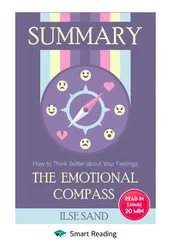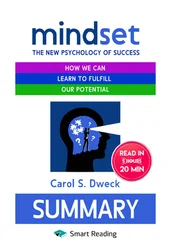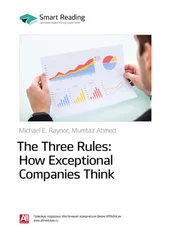Wagenaar, W. A. (1988) . Paradoxes of gambling behavior. Hove, England: Erlbaum.
Wagenaar, W. A., & Keren, G. (1986) . The seat belt paradox: Effect of adopted roles on information seeking. Organizational Behavior and Human Decision Processes, 38, 1–6.
Wagenmakers, E. J., Wetzels, R., Borsboom, D., & van der Maas, H. (2011) . Why psychologists must change the way they analyze their data. Journal of Personality and Social Psychology, 100, 426–432.
Wagner, R. K., & Kantor, P. (2010) . Dyslexia deciphered. In D. Preiss & R. J. Sternberg (Eds.), Innovations in educational psychology (pp. 25–47). New York: Springer.
Wainer, H. (1999) . The most dangerous profession: A note on nonsampling error. Psychological Methods, 4, 250–256.
Wang, L. (2009) . Money and fame: Vividness effects in the National Basketball Association. Journal of Behavioral Decision Making, 22, 20–44.
Wargo, E. (2007) . Aiming at happiness and shooting ourselves in the foot. APS Observer, 20, 13–15.
Wargo, E. (2008, October). The many lives of superstition. APS Observer, 21, 18–24.
Wargo, E. (2011, November). From the lab to the courtroom. APS Observer, 21, 10–33.
Watts, D. J. (2011) . Everything is obvious— once you know the answer. New York: Crown Business.
Wegner, D. M., Fuller, V. A., & Sparrow, B. (2003) . Clever hands: Uncontrolled intelligence in facilitated communication. Journal of Personality and Social Psychology, 85, 5–19.
Weisberg, D. S., Keil, F. C., Goodstein, J., Rawson, E., & Gray, J. R. (2008) . The seductive allure of neuroscience explanations. Journal of Cognitive Neuroscience, 20, 470–477.
Welch, H. G., Schwartz, L. M., & Woloshin, S. (2012) . Overdiagnosed: Making people sick in the pursuit of health. Boston: Beacon Press.
Wellman, H. M., Fang, F., & Peterson, C. C. (2011) . Sequential progressions in a theory of mind scale: Longitudinal perspectives. Child Development, 82, 780–782.
Wells, G. L., Memon, A., & Penrod, S. D. (2006) . Eyewitness evidence: Improving its probative value. Psychological Science in the Public Interest, 7, 45–75.
West, C. (2007, May). From findings to front page: APS engages the public in psychological science. APS Observer, 20, 15–19.
West, S. G. (2009) . Alternatives to randomized experiments. Current Directions in Psychological Science, 18, 299–304.
Whitson, J. A., & Galinsky, A. D. (2008) . Lacking control increases illusory pattern perception. Science, 322, 115–117.
Wickens, C. D., Lee, J., Liu, Y., & Gordon-Becker, S. (2003) . Introduction to human factors engineering (2nd ed.). Upper Saddle River, NJ: Prentice Hall.
Wilkinson, L. (1999) . Statistical methods in psychology journals: Guidelines and explanations. American Psychologist, 54, 595–604.
Wilkowski, B., & Robinson, M. (2008) . The cognitive basis of trait anger and reactive aggression: An integrative analysis. Personality and Social Psychology Review, 12, 3–21.
Willingham, D. T. (2009) . Why don’t students like school? San Francisco: Jossey-Bass.
Wilson, D. S. (2007) . Evolution for everyone: How Darwin’s theory can change the way we think about our lives. New York: Delacorte Press.
Wiseman, R. (2011) . Paranormality: Why we see what isn’t there. London: Macmillan.
Wolf, M. (2007) . Proust and the squid. New York: Harper.
Wolff, C. (2011, August 2). Baseballs’ weight problem. Wall Street Journal, p. D6.
Wood, J. M., Nezworski, M. T., Lilienfeld, S. O., & Garb, H. N. (2003) .
What’s wrong with the Rorschach? San Francisco: Jossey-Bass.
Woodcock, R. W. (2011) .
Woodcock Reading Mastery Tests, revised-normative update. San Antonio, TX: Pearson Education.
Wright, R. (1988) . Three scientists and their gods. New York: Harper & Row.
Yang, M., Wong, S. C. P., & Coid, J. (2010) . The efficacy of violence prediction: A meta-analytic comparison of nine risk assessment tools. Psychological Bulletin, 136, 740–767.
Zebrowitz, L. A., White, B., & Wieneke, K. (2008) . Mere exposure and racial prejudice: Exposure to other-race faces increases liking for strangers of that race. Social Cognition, 26, 259–275.
Zill, N., & Winglee, M. (1990) . Who reads literature? Cabin John, MD: Seven Locks Press.
Zimbardo, P. G. (2004) . Does psychology make a significant difference in our lives? American Psychologist, 59, 339–351.
Zimmer, B. (2010, October 10). Truthiness: The fifth anniversary of Stephen Colbert’s introduction of a zeitgeisty word. New York Times Magazine, p. 22.
Zvolensky, M. J., Vujanovic, A. A., Bernstein, A., & Leyro, T. (2010) . Distress tolerance: Theory, measurement, and relations to psychopathology. Current Directions in Psychological Science, 19, 406–410.
Zweig, M. (2008) . Your money and your brain. New York: Simon & Schuster.
Chapter 2: p. 32, ©2000 Council for Secular Humanism.
Chapter 4: p. 59, Copyright The New England Journal of Medicine.
Chapter 10: p. 156, Copyright © 2005 Condè Nast. All rights reserved. Originally published in The New Yorker. Reprinted by permission.
Abbot, N. C., 57
Abrami, P., xi
Abrevaya, J., 78
Adler, D., 116, 119, 137
Adler, J., 45
Alberstadt, A., 8
American Psychiatric Association, 46
Anderson, C. A., 77, 128, 131
Anderson, K. B., 77, 128
Angell, M., 59
Angier, N., 35, 152, 153, 164, 201
Ariely, D., 57, 104, 105, 119
Asimov, I., 34, 35
Associated Press, 61, 140
Atran, S., 118
Attari, S. Z., 116
Ayres, I., 93
Azar, B., 31
Baker, T. B., 77, 198
Baldwin, S. A., 58
Banerjee, A., 93
Barnes, R., 8
Barnett, A., 174
Baron-Cohen, S., 97, 99
Baron, J., 164, 199
Bartels, L. M., 148
Bartholow, B. D., 131
Bartoshuk, L., 191
Baumeister, R. F., 15, 79, 121
Beane, B., 182
Beck, D. M., 62
Beck, M., 66
Begley, S., 56, 57, 186, 198
Begue, L., 171
Beins, B. C., 105
Bem, D., 187
Benedetti, F., 56
Benjamin, L. T., 193
Benson, E. S., 111, 116
Benson, H., 105
Berkowitz, L., 119
Berliner, D. C., 77
Berman, J., 141
Bernstein, A., 43
Bernstein, L., 105
Beyerstein, B. L., 16
Biddle, B., 77
Bilmes, L. J., 148
Binga, T., 33
Birnbaum, M. H., 119
Bjorklund, D. F., 5, 55
Bjork, R., 137
Blanchard, E. B., 60
Blass, T., 116
Blastland, M., 82
Bloom, P., 102
Bluming, A., 82
Blyth, D., 145
Boehm, J. K., 16
Boer, E., 113, 134
Bogle, J. C., 169, 180
Borenstein, M., 141
Borsboom, D., 187
Bower, B., 33
Boyd, R., 16
Brainerd, C. J., 116, 198
Breitmeyer, B. J., 145, 146
Brennan, D., 66
Brewer, D. J., 80
Broadbent, D. E., 48, 113
Brody, J. E., 66, 149, 150, 191
Bronfenbrenner, U., 75
Bronowski, J., 8, 124, 153
Bronson, P., 68
Brookhuis, K., 182
Brooks, A. C., 15, 148
Brownell, K. D., 191
Brown, M., 45
Bruck, M., 116
Bruine de Bruin, W., 116
Bryan, C., 116
Bryant, R. A., 196
Buchtel, E. E., 118
Buckley, C., 94
Buhle, J., 56
Bujak-Johnson, A., 4
Bunde, J., 43, 138, 139
Burgeson, R., 145
Burton, R., 92
Busey, T. A., 116
Buss, D. M., 5
Cacioppo, J. T., 5
Campbell, J. D., 15
Caprariello, P. A., 105
Card, N. A., 141
Carlino, E., 56
Carlo, G., 146
Carlton-Ford, S., 145
Carmon, Z., 57
Carnagey, N. L., 131
Carnoy, M., 77
Carter, R., 105, 134
Carton, A. M., 78
Cartwright, J., 5
Читать дальше












